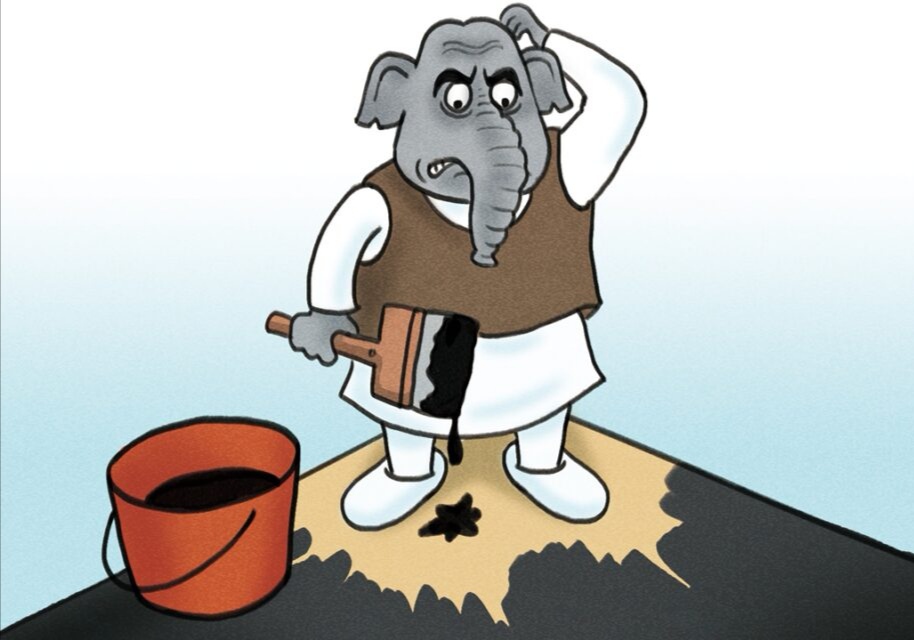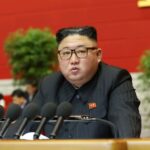Recent political situation:
In May last year, some officials of the Indian intelligence agency RAW secretly visited Nepal amid claims by the Indian media that China’s influence in Nepal was increasing. In particular, they had a special meeting with NCP (NCP) Chairman Prachanda and senior leader Madhav Kumar Nepal. During the meeting, they said that the government of Prime Minister KP Sharma Oli has become very unpopular among the people due to its inability to control corruption and increase corruption. At this time, the people will support the move against the government and the government can be easily overthrown, they briefed. Not only briefing, they also pledged their full support to the anti-government campaign. While Prachanda was forming a strong faction within the party against Prime Minister Oli, Prachanda encouraged after being briefed by RAW officials. As soon as the RAW officials returned, former Prime Minister and Chairman Prachanda began to strengthen his anti-government stance by forging stronger alliances with senior leaders Madhav Kumar Nepal and Jhala Nath Khanal. After repeated meetings of the Central Secretariat and meetings of the Standing Committee failed to remove the Prime Minister from office, the two sides finally decided in November to move forward by resolving the issue through mutual cooperation and consensus. In particular, it was decided to make the appointment of the government consent with Prachanda. It was also said that the report of the task force formed by the party would be followed. Four days after the agreement was reached, Prime Minister Oli made a single decision to appoint ambassadors to different countries. Immediately, the agreement reached a few days ago broke down again and a new dispute started.
After the failure to remove the minority Prime Minister from the post at the meeting of the Central Secretariat, the Dahal-Nepal alliance came to the conclusion that the Prime Minister Oli had the support of the United States and China, and decided that the Prime Minister Oli being a Chinese agent. The Dahal-Nepal group concluded that the role of China was the reason why the Indians could not overthrow the government.
On the one hand, due to the activism and desire of the Prime Minister, Nepal issued a new map. After the issuance of the new map, the Dahal-Nepal faction took the initiative as a last effort, with the conclusion that India could go against Oli and remove PM Oli from the post if it moves forward. India has not been able to stop the issuance of the map due to its weak influence in Nepal, playing on the internal differences of the NCP, on the one hand, it sent RAW chief Samant Kumar Goal to meet the Prime Minister and meanwhile, seven other officials who came with Samantha Kumar Goal raised the Dahal-Nepal group against the government. After meeting Prachanda and Madhav Kumar Nepal separately and gave briefcases, the dispute within the NCP reached in its climax. The situation became out of control that Prime Minister Oli could not control the situation even though he wanted to. There has never been any dispute in the private meeting between the Prime Minister and Prachanda. But, there have been disputes with Prachanda only when Madhav Kumar Nepal, Jhala Nath Khanal or other leaders went to meet the Prime Minister. From this it can be understood that the NCP dispute is not a party dispute of principles and policies.
Prachanda seems to have been influenced by the Indian intelligence agency RAW and the Congress I, and Prime Minister Oli by the Indian government side, the BJP and the RSS. The CIA seems to be playing into Nepal’s political parties through various NGOs / INGOs and the RSS. India is playing on the contradictions of the parties by showing the king the lollipop of the Hindu kingdom and trying to make Nepal like Sikkim or Bhutan with the help of the US and the Americans seem to be planning to keep China out of Nepal and set up bases here by tempting India to help it gain control over Nepal. At this time, Nepal’s politics is revolving around this. The increase in Chinese investment and trade in Nepal compared to the past has made it difficult for the Indo-Western alliance to succeed. China has become the main challenge to the Indo-Western alliance in Nepal.
The chances of an agreement between the two presidents are low:
Relations between the two NCP presidents have soured. It is well understood that the Dahal-Nepal group took the initiative to remove the Prime Minister by submitting a no-confidence motion and the embarrassment created after the dissolution of the House of Representatives by the Prime Minister has not been resolved yet. The dispute is in the Supreme Court. Everyone is waiting for the decision of the Supreme Court.
If the Supreme Court upholds the decision to dissolve the House of Representatives, there will be no reunification of the NCP and politics will move in the direction of taking the new mandate announced by the Prime Minister. Even if the Supreme Court overturns the decision to dissolve the House of Representatives, there will be no chances of the NCP unification. After the Dahal-Nepal faction left, Prime Minister and NCP Chairman KP Oli has expanded the number of Central Committees. In such a situation, the Dahal-Nepal faction cannot remove KP Oli in the current situation. Apart from this, the Indo-West alliance has been active in the campaign to prevent the NCP from uniting. In such a situation, the possibility of reunification of the NCP is low, though the both chairs have publicly announced that if they came with the self realization and correcting own mistakes then the possibility is still remaining. If new elections are decided in the country, there may be an electoral alliance between the departed NCP leaders.
Agenda of Foreign Minister’s visit to India:
Foreign Minister Pradip Gyawali is preparing to leave for India for the 6th Nepal-India Joint Ministerial Meeting. During the Foreign Minister’s visit to India, Nepal has prepared a dozen agendas for discussion by prioritizing the Chuchche Map issued this year covering the areas of Lipulec, Limpiyadhura and Kalapani and Corona Virus Vaccine.
Among the agenda of the joint commission meeting to be held between the two countries in New Delhi on January 14 and 15 is the Chuchche map issued by Nepal. Chuchche map is being made the main topic of discussion for Nepal to bring back the lands of Lipulek, Limpiyadhura and Kalapani.
Similarly, the report of the Nepal-India Enlightened People’s Group (EPG) raised in the fifth joint meeting held in Kathmandu and the 1950 Nepal-India Peace and Friendship Treaty will be discussed this time as well. The fifth meeting of the Nepal-India Foreign Ministerial Joint Commission was held in Kathmandu in August 2019. The two countries had formed the Group of Enlightened Persons (EPG) six years ago to cover various issues between Nepal and India. EPG had prepared the report three years ago. The EPG had decided to submit the report first to the Prime Minister of India and then to the Prime Minister of Nepal. This issue will also be discussed during this visit.
Roads, culverts and other physical structures constructed by the Indian side in the Nepal-India border area cause flooding in the southern part of Nepal every year. In order to solve the problem between the two countries, the agenda of the Foreign is to discuss the issue of flood control. The Ministry of Foreign Affairs has already set the agenda on these issues.
Similarly, economic cooperation between the two countries, bilateral trade, various development projects, railway network, energy, technology exchange and post-earthquake reconstruction are on the agenda of the Joint Commission meeting. The mechanism was first set up in 2044 BS after an agreement was reached at the political level of both the countries. The commission was set up to resolve problems between the two countries and strengthens ties.
During his visit to India, the Foreign Minister has prepared 12 agendas for discussion.
1. Boundary dispute including Chuchche map
2. Corona virus vaccine
3. EPG report
4. Peace and Friendship Treaty of 1950
5. Bilateral trade
6. Various development projects
7. Rail network
8. Financial assistance
9. Energy
10. Inundation and flood control
11. Technology exchange
12. Post-earthquake reconstruction.




